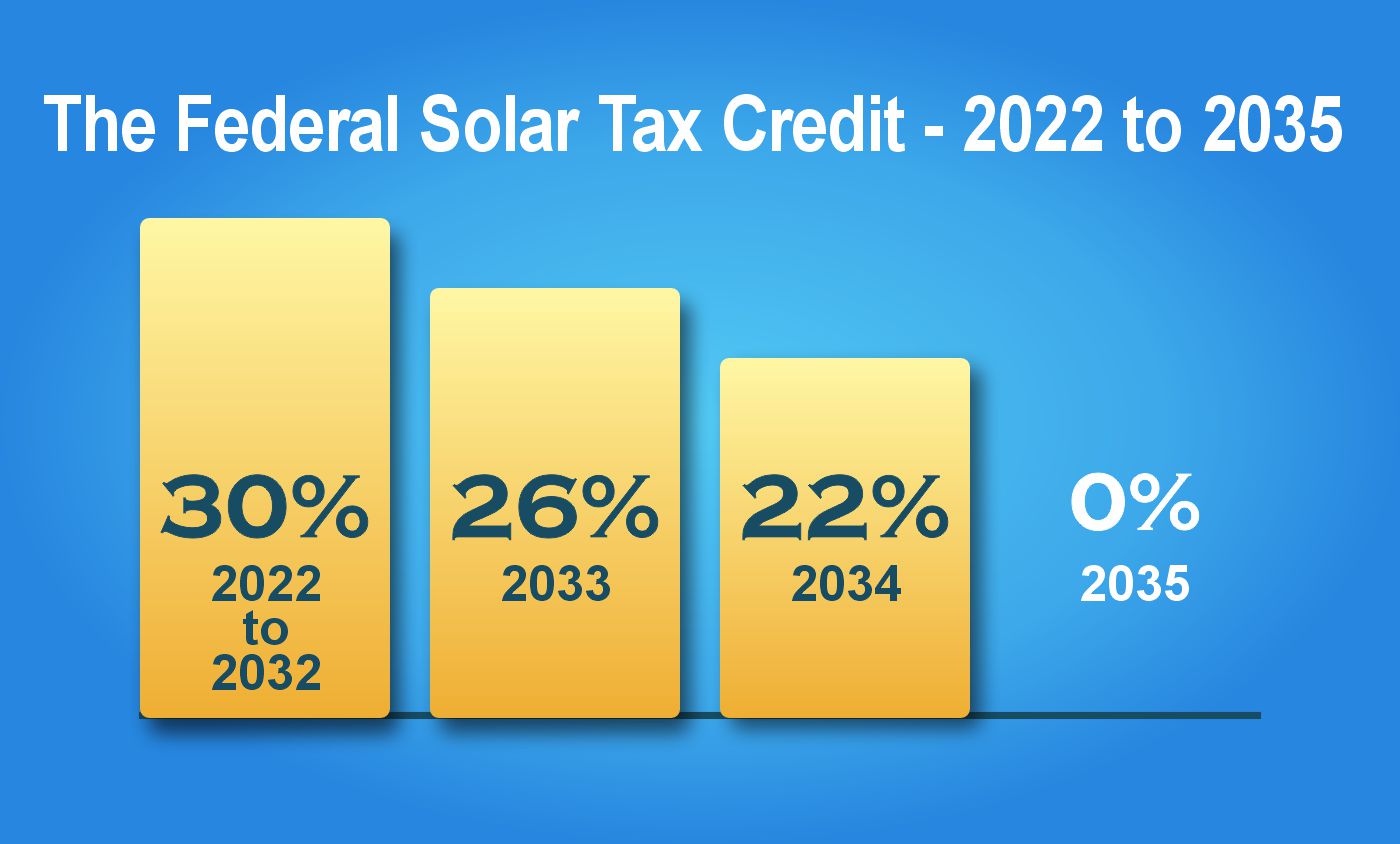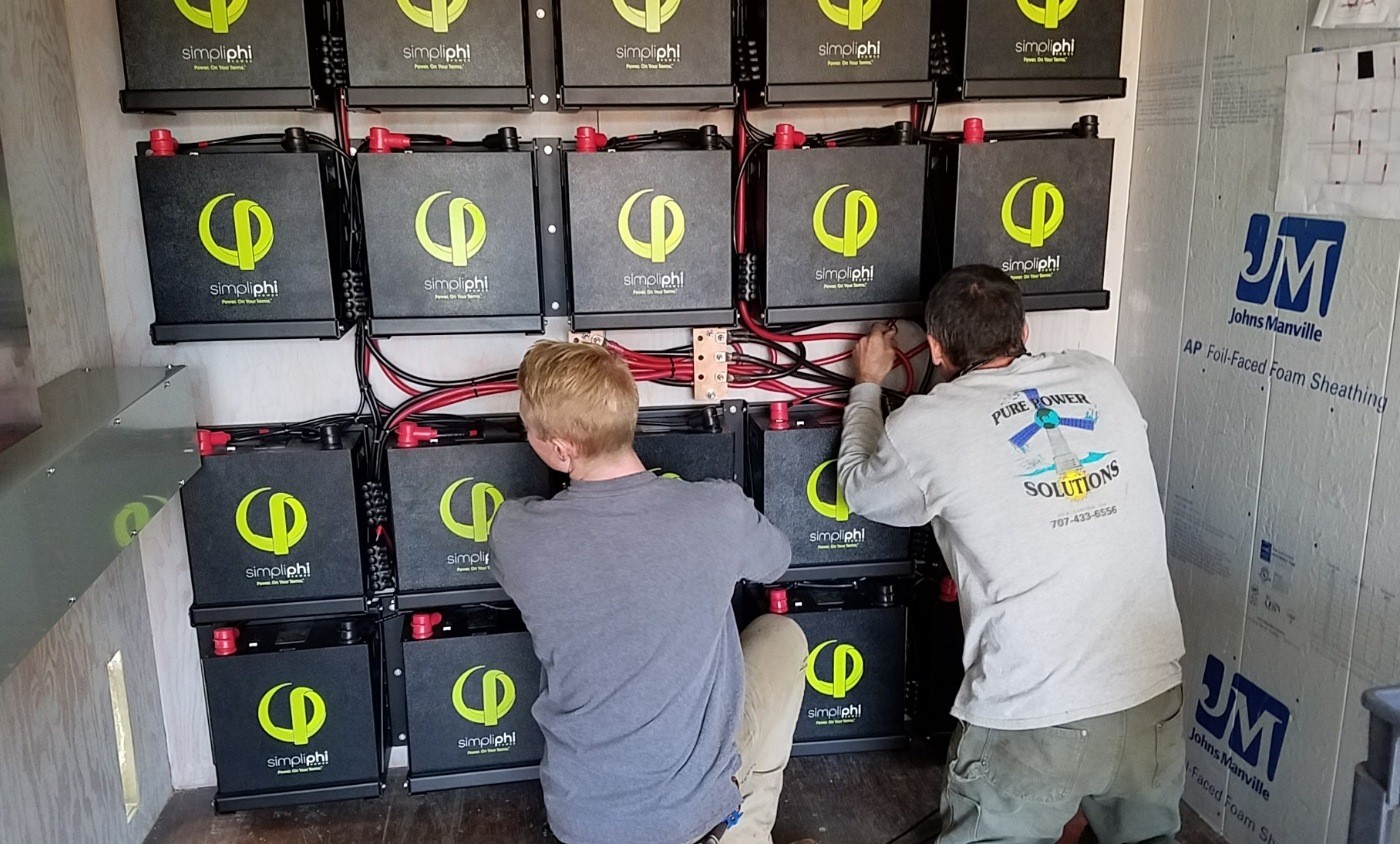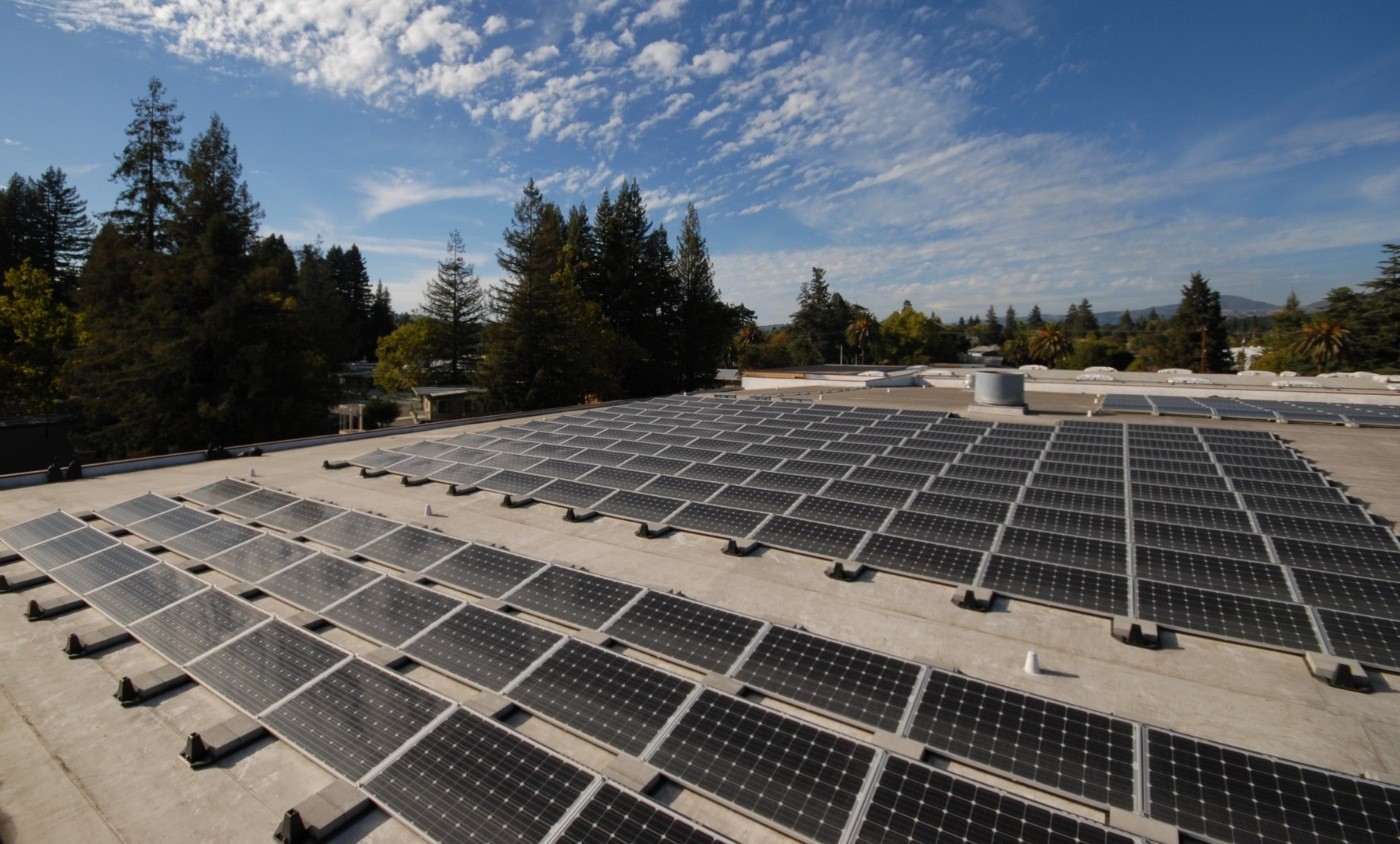How The Federal Solar Tax Credit Works for Homeowners
In 2022 President Joe Biden signed the Inflation Reduction Act which, among other things, created incentives for investment in renewable energy projects. For solar and battery energy storage projects, it extends these applicable tax credits through 2034. This is really great news for homeowners interested in investing in a solar energy system as it reduces the cost of installing a system by 30% by way of a dollar for dollar tax credit.
The amount of the federal tax credit has fluctuated in the past, but currently allows you to reduce your federal tax burden in an amount equal to 30% of the cost of your solar (and battery) energy system. It is not a tax deduction or refund; it just reduces what you owe in federal taxes. It can be claimed in the year that your solar energy system is placed in service. If you owe less in federal taxes than the amount of the credit, the remainder of the credit can be applied to future year tax burdens.
Which properties can engage the tax credit?
The federal solar tax credit is available to US homes, mobile homes, houseboats, condominiums, and cooperative apartments, as long as you own the solar energy system. It applies to primary and secondary homes, even if the secondary is a vacation or part-time rental home.
If your solar system installation is for a part-time rental or vacation property that you own, you can only claim the solar tax credit if you live at that property for at least part of the year. In this case, you can only claim the portion of the credit that reflects how much time you are living there. For example, if you install an $18,000 system on your vacation home, and you live at the vacation home 3 months of the year (50% of the year), then the tax credit would be 30% x $18,000 = $6,000; then 50% x $6,000 = $3,000 total tax credit.
A word of caution; the homeowner may not claim the tax credit if the system is leased, or if it is installed as part of a Power Purchase Agreement (PPA), as both of these system types are those wherein the property owner does not own the solar energy system. Yet another great reason not to lease or do a PPA! However, if you finance your system, then the tax credit does apply for the actual system cost, not interest or other loan related fees.
Which types of solar energy projects are eligible?
You can claim the tax credit for both solar and battery energy systems, roof or ground mount, including the balance of system equipment required for the system to function.
How To Claim the Federal Solar Tax Credit
You claim the solar tax credit as part of your annual federal tax return with the Internal Revenue Service (IRS). As always with tax related items, check with your tax professional or accountant to verify your eligibility as well as the process for claiming the tax credit.



